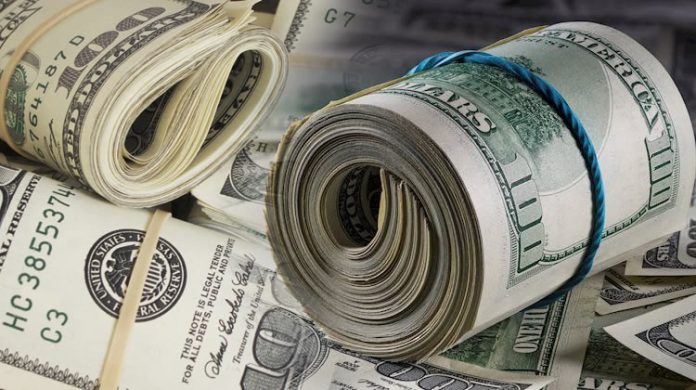At the parallel segment of the foreign currency (FX) market on Monday, the naira strengthened significantly, trading at N1,490 per dollar. The naira appreciated by 1.34 percent from the N1,510/$ value seen on Friday. Currency traders in Nigeria’s business capital quoted the buying rate of the haven currency at N1,460 and the selling price at N1,490.
The local currency also increased by 1.93 percent to N1,469/$ in the official FX market on Monday, from N1,497.3/$ traded on May 17.
Market expectations remain high amid concerns that the Monetary Policy Committee (MPC) may be worried about rising inflationary pressures and recent changes in foreign exchange. Nine of the 12 economists surveyed by Bloomberg anticipate a percentage-point increase, two anticipate a 200 basis-point increase, and one expects no change when Governor Olayemi Cardoso announces the MPC’s decision in the nation’s capital, Abuja, on Tuesday.
In the first quarter, the MPC increased rates by six percentage points to 24.75 percent to control inflation and maintain currency stability.
Under the leadership of Mr. Olayemi Cardoso, this will be the third MPC meeting. The Monetary Policy Rate increased by 600 basis points during the sessions in February and March. With the food index reaching 40.53 percent in April, it was one of the most extreme attempts to control the growing inflationary pressures, which subsequently surged to 33.69 percent.
The Nigerian currency has lost most of the gains it had made over the previous few weeks, making it the world’s worst-performing currency.
Since President Bola Tinubu’s administration loosened foreign exchange regulations in June—he will begin his first year in office next week—the decline represents the most recent wave of instability. The value of the Nigerian naira has dropped by around 69 percent compared to the US dollar since Nigeria adopted the new exchange regime, which has accelerated inflation, reaching 33.7 percent last month—more than three times the central bank’s goal range of 9 percent.
The CBN, which is generally expected to maintain rates high or hawkish for some time, may have more leeway if expectations for a potential hike in US interest rates fade.
The dollar modestly strengthened as traders expected further signals from the Federal Reserve about U.S interest rates, while the naira showed some resilience. The dollar index and dollar index futures both increased by roughly 0.1% during the London trading session.
Remarks from Fed officials supporting the idea that interest rates would likely stay steady in the interim and that the central bank still needed more evidence that inflation was declining supported the greenback. This focused attention on the Fed’s late-April meeting minutes, which are expected on Wednesday and will provide further details on the bank’s rate policy. In the upcoming days, several more Fed representatives—mostly those who sit on the bank’s rate-setting committee—are scheduled to appear.
The expectation of higher U.S. rates for an extended period is positive for the dollar and negative for more volatile, high-yielding currencies. This year’s surge in the US dollar has reversed as investors have wagered that the world’s largest economy’s declining inflation will provide the Federal Reserve greater leeway to lower interest rates.
After rising as much as 5% this year by mid-April compared to a basket of major currencies like the Euro, Japanese Yen, British pound, and Swiss Franc, the US dollar is now expected to see its first decline in 2024 after the rate of consumer price inflation lowered on Wednesday in line with projections.


